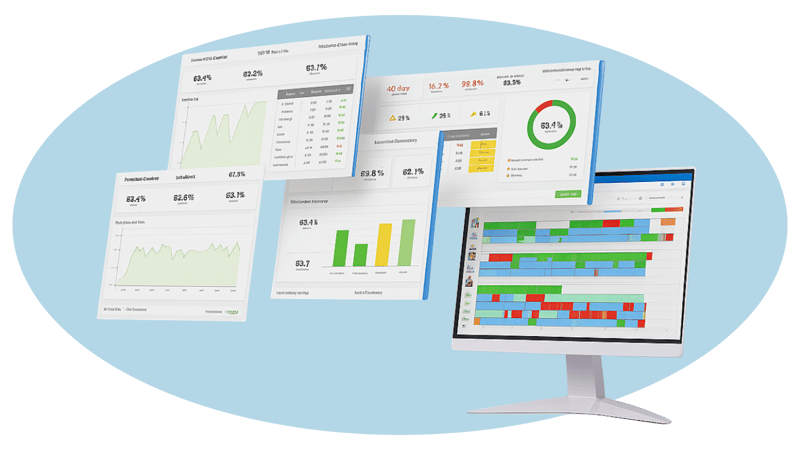Why Integrate PlanetTogether APS?
Integrating PlanetTogether APS helps your business gain major competitive advantages. It boosts efficiency, increases visibility, and supports smarter decisions. Integrating your scheduling data across multiple platforms means fewer errors and less manual effort.
With improved visibility into production and inventory, you can quickly spot and address issues before they become bottlenecks. Real-time data synchronization allows your organization to react swiftly to changing demands, keeping you agile and competitive.
Ultimately, integrating PlanetTogether APS delivers quick returns by aligning your operational efficiencies closely with strategic goals.

.png?width=800&height=450&name=pharmaceutical%20industry%20medicine%20(4).png)
Key Benefits
- Synchronize data across platforms
- Improved production and inventory visibility
- Fewer manual scheduling errors
- Better decision-making through accurate scenario analysis
- Rapid deployment and faster ROI
Integration Success Story
In less than 60 days, a leading medical device company eliminated 250 production orders previously created based on forecasts. By shifting to PlanetTogether APS, they cut inventory overhead by around 15% and reduced overtime labor costs by about 20%.
The director of material systems and information technology remarked, “We’re no longer building equipment to stock—we’re building to ship.”
.png?width=800&height=450&name=pharmaceutical%20industry%20medicine%20(3).png)
ERP, Supply Chain & Custom API Integration
PlanetTogether APS provides strong integration capabilities powered by flexible APIs. This allows your team to easily connect with various ERP, MES, and supply chain systems. Our APIs make it possible to create tailored integrations specific to your business needs.
ERP Systems
-
SAP S4/HANA & ECC6
-
Microsoft Dynamics AX & NAV
-
Oracle ERP, NetSuite, EBS
-
Infor SyteLine, M3
-
Epicor Kinetic
-
QAD
MES Systems
-
AVEVA
-
Plex MES (Rockwell Automation)
SCM Systems
-
Blue Ridge
-
Atlas (John Galt)
-
Maestro (Kinaxis)
Integration FAQs
How long does integration typically take?
Most integrations can be completed in 4-8 weeks, depending on the complexity and systems involved.
Which ERP systems can PlanetTogether APS be integrated into?
PlanetTogether APS can connect with any system that has APIs, backend databases, or file import/export capabilities. We often use Azure Data Factory for integration, but any customer-owned iPaaS can also be utilized.
Can I connect PlanetTogether APS with multiple systems simultaneously?
Yes, PlanetTogether supports simultaneous connections with multiple systems, allowing comprehensive data synchronization across your entire supply chain.
Do I need special IT resources for integration?
Your IT team will need familiarity with integration protocols and field mappings for data sent to and received from PlanetTogether.


